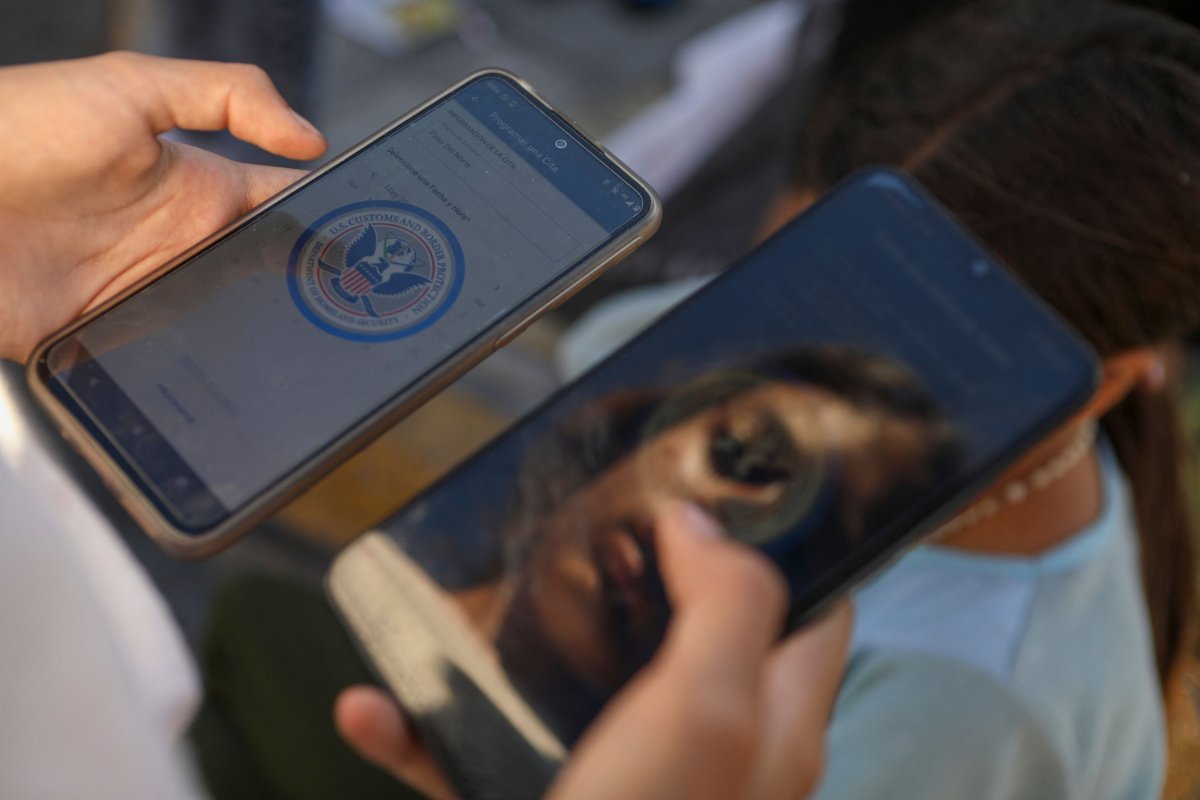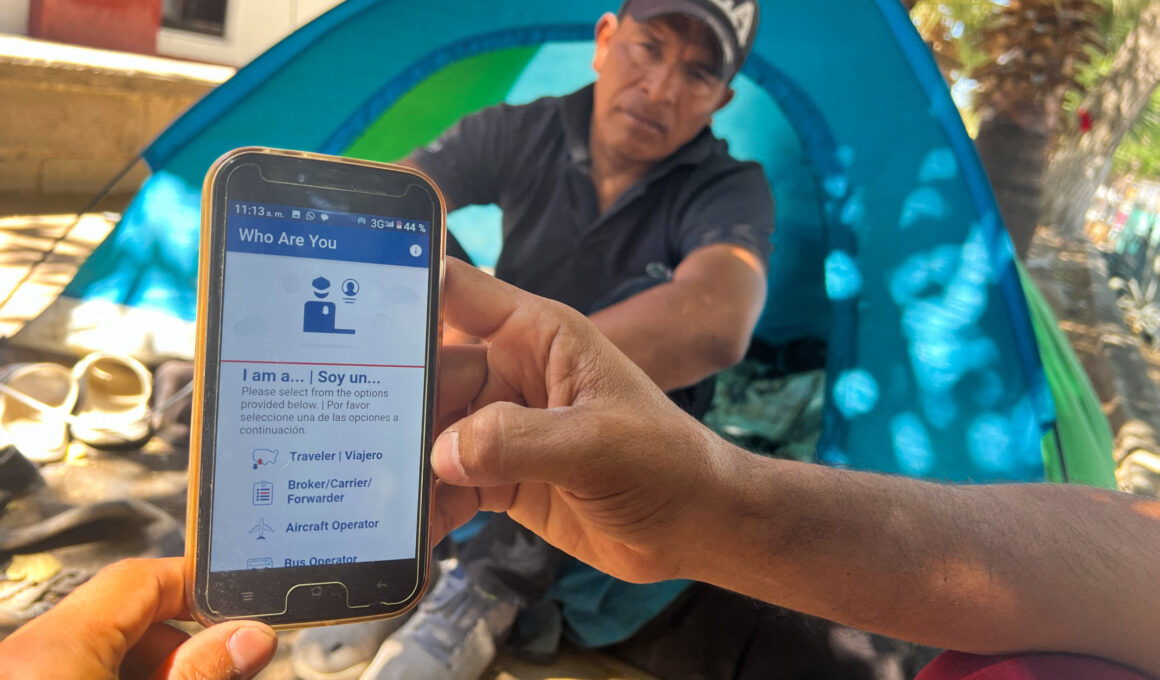Immigrants trying to reach the United States are being tricked by organized crime gangs into buying fake appointments they believe are through the official Customs and Border Protection app.
That’s according to the International Rescue Committee, which works across the U.S.-Mexico border and has received reports of people desperately seeking a CBP One appointment falling for the scam.
“I believe they were led to the port of entry, where at that stage they found out their appointment was fake,” Rafael Velasquez Garcia, the IRC’s director in Mexico, told Newsweek.
The app is currently the only way to book an appointment at a port of entry, with over 41,800 people processed in June 2024.
CBP told Newsweek that it had introduced extra measures on the app in May to try to halt human smuggling, but the IRC said that it isn’t always clear to migrants what they are supposed to do.
“Misinformation, change and confusion is the bread and butter of organized crime,” Velasquez Garcia said, adding that the IRC believes that smugglers get hold of migrants desperate for transportation into the U.S. and exploit that for their gain, including offering these fake appointments.
CBP One can only be used by migrants in Mexico City or in states close to the border, which has meant many are staying put in the city awaiting appointments. Once they are allocated a time, they can present themselves at the respective port of entry.
Border patrol argued that the app had streamlined processing migrants at the border, but humanitarian organizations have raised concerns about it in the past.
Earlier in July, Amnesty International said migrants with genuine appointments were being kidnapped by cartels, who then held them to ransom over the appointments.

CBP said in its June update that over 680,500 people had made appointments since January 2023, “instead of risking their lives in the hands of smugglers.”
To Velasquez Garcia and the IRC, the lack of clear information for migrants puts them in danger, even as they enter southern Mexico.
“When we try to present them with information that is reliable, that’s been proven, oftentimes they are in shock that they are not going to be able to reach the northern border within three hours, that there are not going to be busses available, which makes them more likely to be targeted,” he said.
A CBP spokesperson told Newsweek that CBP One was a key tool in encouraging “lawful, safe, humane and orderly pathways” into the U.S.
“CBP has made updates to the CBP One application to both improve functionality and enhance security, and is continually monitoring and evaluating the application to ensure its functionality and guard against bad actors,” the spokesperson said.
If fraud is detected, app users will receive a message stating so and their registration may be deactivated, CBP said. Users would then need to contact CBP to challenge this.
Do you have a story Newsweek should be covering? Do you have any questions about this story? Contact LiveNews@newsweek.com
Uncommon Knowledge
Newsweek is committed to challenging conventional wisdom and finding connections in the search for common ground.
Newsweek is committed to challenging conventional wisdom and finding connections in the search for common ground.








